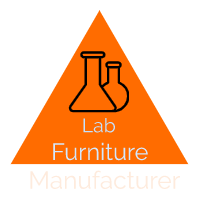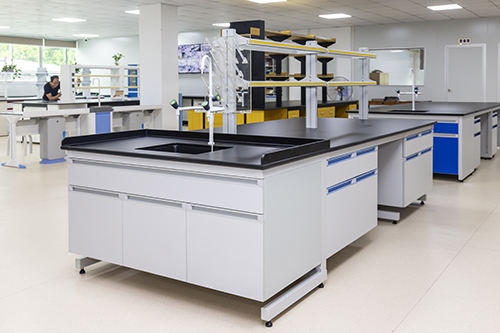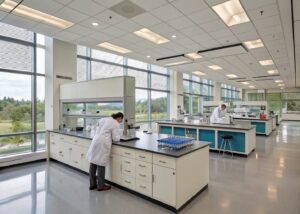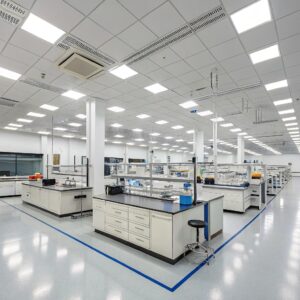Table of Contents
Regular maintenance of the lab can significantly extend the life of lab furniture and equipment. It also helps identify hidden safety hazards and prevent accidents caused by equipment aging or misuse.
Daily Maintenance of Lab Fume Hood
Clean Regularly
Use a neutral detergent to clean all parts of the fume hood, including the glass window, inner lining board, and the inside and outside of the deflector.
Lubricate Moving Parts
Regularly lubricate the sliding rails, cables, and balance pulleys of the adjusting door.
Test Remote Controls
Ensure that all remote control devices (faucet, gas cock) are working properly.
Inspect Exhaust Pipeline
Regularly check for leaks, especially between the exhaust hood and the pipeline.
Check Inside the Hood
Inspect for impurities in the elbow of the exhaust hood. Avoid prolonged direct contact with open flames or high temperatures on the fume hood countertop. Use asbestos pads or triangular brackets for insulation when using high-wattage electric furnaces.
Handle Chemicals Properly
Although the countertop is resistant to various chemicals, it should not be exposed to prolonged contact or immersion. Clean up any chemical spills immediately.
Common Maintenance
Avoid Sun Exposure
Do not expose lab furniture to direct sunlight for long periods to prevent surface damage and dullness.
Repair Scratches
Use similar color pigment and wax to make scratches less noticeable.
Proper Cleaning
Avoid using boiling water or strong alkaline detergents to clean lab furniture to prevent paint damage.
Prevent Mold
Do not place wooden lab furniture in damp or stuffy areas.
Mind Load Capacity
Desks and filing cabinets should be used within their load capacity to prevent deformation.
Regular Maintenance
Regular waxing helps keep the furniture surface shiny.
Different Worktop’s Maintenance
Phenolic Countertop
Clean with warm water, acetone, or mild detergent like hand or dish soap. Avoid abrasive or acidic detergents. For stubborn stains, use hydrogen peroxide followed by clean water.
Ceramic Countertop
Use hydrofluoric acid cautiously, and protect the surface with a plastic or rubber pad. Regular cleaning and prompt wiping of absorbent liquids with toothpaste or oxalic acid thinner are recommended. Lift the tabletop gently to avoid scratches.
Epoxy Resin Countertop
Remove oily marks with a cloth dampened with naphtha or solvent. Clean and polish regularly with a paper towel, clean rag, or varnish. Restore shine by wiping with an oiled cloth and drying with a dry cloth.




